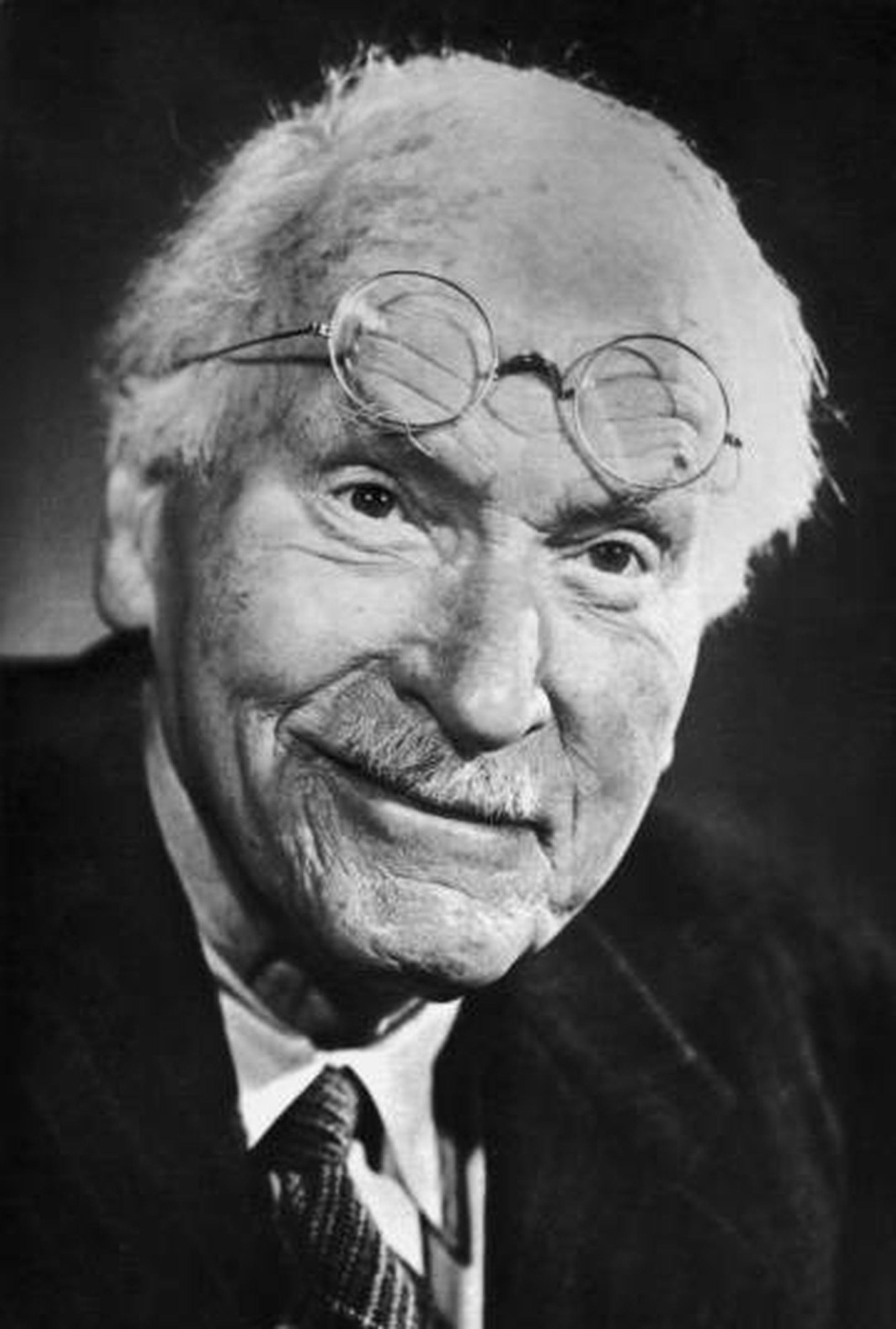Carl Jung's Financial Footprint - Exploring His Worth
When we think about the enduring impact of a truly profound thinker like Carl Jung, our thoughts naturally drift to his deep insights into the human mind, his groundbreaking ideas about the collective unconscious, and the lasting influence he has had on psychology and beyond. It is, you know, a bit fascinating to consider the practical side of such a life, especially what it might have meant for someone's financial standing. We often ponder the legacies of these figures, but rarely do we stop to consider, too, the material realities they lived within.
This particular discussion, you see, turns its attention to a somewhat less explored facet of his existence: the financial picture that might have taken shape around him. What does it really mean to talk about the net worth of a historical figure, someone whose primary contribution was in the realm of ideas and healing? It's a question that, in some respects, invites us to think about how intellectual capital translates into tangible assets, or if it even does in the way we typically understand wealth today.
So, as we look at the life of this Swiss psychologist, Carl Jung, the question of his personal fortune, his accumulated resources, or what one might call his net worth, naturally comes up. It’s a curiosity that, perhaps, helps us ground his abstract contributions in the everyday realities of his time, and consider how a professional of his stature would have managed his affairs, financially speaking. What, if anything, can we gather about the money side of his life?
Table of Contents
- Who Was Carl Jung - A Look at His Background
- What Shaped Carl Jung's Financial Standing?
- The Broader Context - Thinking About Wealth in Historical Times
- Reflections on Carl Jung's Legacy Beyond Money
Who Was Carl Jung - A Look at His Background
Carl Jung, as many people know, was a very well-known Swiss psychologist, a figure whose thoughts and writings truly changed the way we look at the human mind. His work, you know, went far beyond simple therapy, reaching into areas of mythology, religion, and philosophy. He was, in a way, a pioneer in the early days of modern psychology, building a distinct system of thought that still resonates with people today.
His professional life, from what we can gather, involved a great deal of intellectual effort and clinical practice. He developed a school of thought called analytical psychology, which presented a different approach from some of his contemporaries. It's almost as if he created a whole new lens through which to view the inner workings of individuals. This dedication to his craft, naturally, formed the foundation of his career and, in turn, any potential for financial gain.
Personal Details - Carl Jung
While the specific financial figures for Carl Jung's net worth are not readily available in the information at hand, we can consider some basic biographical details that might help us understand the context of his life and professional activities.
| Full Name | Carl Gustav Jung |
| Nationality | Swiss |
| Profession | Psychologist, Psychiatrist, Author |
| Birth Year | 1875 |
| Death Year | 1961 |
| Known For | Analytical Psychology, Collective Unconscious, Archetypes, Psychological Types |
What Shaped Carl Jung's Financial Standing?
When we talk about the financial standing of a person like Carl Jung, it's not just about counting up bank accounts or properties. It's about considering the many different streams of income that someone in his position might have had. For a famous Swiss psychologist, his earnings would likely have come from a variety of sources, each contributing to his overall financial picture, or his "carl jung net worth," if you will. This is where the actual work of a professional, especially one with a unique specialization, truly starts to show its value in material terms.
How Did a Psychologist Like Carl Jung Earn Money?
A psychologist in Jung's era, particularly one who gained considerable recognition, would typically generate income through several avenues. First and foremost, there would be the private practice of psychotherapy. People seeking his specific brand of psychological insight would pay for his time and expertise. This direct client work, you know, forms the basic bread and butter for many professionals in the helping professions. The reputation of a practitioner, especially one who becomes as well-known as Carl Jung, could command higher fees, which would certainly add to his overall "carl jung net worth."
Beyond individual sessions, there's also the aspect of teaching and lecturing. Carl Jung, being a prominent figure, would have been invited to speak at universities, conferences, and various institutions, both in Switzerland and perhaps internationally. These engagements, typically, come with speaking fees or honorariums. Sharing knowledge and insights with a broader audience, as a matter of fact, can be a significant source of revenue for academics and thought leaders, further bolstering their financial situation.
Considering the Value of Carl Jung's Intellectual Contributions to His Net Worth
The true measure of someone like Carl Jung's influence, of course, goes far beyond simple monetary terms. However, his intellectual contributions, his original thoughts, and his published works did, in fact, have a tangible financial component. The books he authored, the papers he wrote, and the concepts he introduced became intellectual property that could generate royalties. Every time one of his books was sold, or his theories were referenced in an academic publication, there was a potential for income. This kind of passive income, you know, can build up over many years, contributing significantly to a person's long-term "carl jung net worth."
His ideas, too, became the subject of study and discussion across the globe, leading to translations of his works into many different languages. Each new translation and publication opened up new markets and new opportunities for earning. The lasting appeal of his psychological framework, basically, meant that his intellectual output continued to be a source of financial return long after its initial creation. This kind of enduring intellectual legacy is quite unique in its capacity to generate ongoing value.
Did Carl Jung's Writings and Teachings Influence His Financial Picture?
Absolutely, the body of work that Carl Jung produced, his many books and academic papers, played a very significant role in shaping his financial standing. These writings weren't just academic exercises; they were products that could be sold and distributed. The popularity of his concepts, like archetypes or the collective unconscious, meant that there was a consistent demand for his published materials. This continuous demand, you know, translated directly into royalty payments, which would accumulate over time, adding to his "carl jung net worth."
Furthermore, his teachings and lectures, whether in formal academic settings or to private groups, also contributed. These weren't always just charitable endeavors; often, there would be fees associated with attending his seminars or courses. The more sought-after his insights became, the more valuable his time and knowledge were perceived to be, and this, in turn, allowed him to command a certain level of financial compensation for sharing his wisdom. So, in essence, his intellectual output and his role as an educator were very much intertwined with his financial well-being.
The Broader Context - Thinking About Wealth in Historical Times
Understanding the "carl jung net worth" also means putting it into the context of the time period in which he lived. The economic landscape of the early to mid-20th century was quite different from today's. There were different standards of living, different investment opportunities, and different ways in which wealth was accumulated and managed. What might seem like a modest sum by today's standards could have represented a substantial fortune back then, allowing for a very comfortable existence and the ability to pursue intellectual endeavors without constant financial worry.
Moreover, the concept of a "net worth" itself, while always involving assets minus liabilities, was calculated and perceived differently. There was less emphasis on publicly disclosed financial figures for individuals, especially for those who weren't industrial magnates or royalty. So, getting a precise figure for someone like Carl Jung can be quite a challenge, as a matter of fact, given the limited public financial records from that era.
What Challenges Might Affect Carl Jung's Net Worth Estimates?
Estimating the "carl jung net worth" presents several challenges, mostly because detailed financial records for historical figures, especially those not directly involved in large-scale commerce or politics, are rarely made public or even meticulously preserved. We don't typically have access to their tax returns, their bank statements, or comprehensive lists of their personal assets. This lack of concrete data makes any precise calculation a bit speculative, to be honest.
Also, the value of money itself changes significantly over time. A certain amount of Swiss Francs in the 1930s would have a completely different purchasing power compared to the same amount today. So, even if we had a precise figure from his lifetime, converting it to a modern equivalent would require complex economic adjustments. This makes a direct comparison or a simple statement of "carl jung net worth" quite tricky, as you can imagine, and necessitates a broader discussion of his financial standing rather than a single number.
Are There Other "Carls" Whose Financial Paths Offer Clues?
It's interesting to consider that the name "Carl" itself has a long history, often associated with strength or freedom, and has been borne by various figures, some of whom had very different financial paths. For instance, the name "Carl" has been used by many kings in Sweden, like Carl XVI Gustaf, whose financial standing is, obviously, tied to their royal position and national resources. Their wealth is of a completely different order compared to a psychologist like Carl Jung, you know.
Then there are other "Carls" mentioned in various contexts, like Carl Czerny, the famous piano educator and artist, whose musical works, sadly, seem to have faded from public memory, raising questions about the financial longevity of artistic endeavors. Or even a modern example like "Carl's Tax Circle," which focuses on helping people legally save money on taxes, implying a concern with personal financial management and optimization. While these "Carls" don't directly tell us about Carl Jung's specific "carl jung net worth," they do highlight the diverse ways individuals named Carl have interacted with money and wealth across different professions and historical periods, offering a kind of broad context for thinking about financial legacies.
Reflections on Carl Jung's Legacy Beyond Money
Ultimately, while discussing the potential "carl jung net worth" provides a fascinating glimpse into the material aspects of his life, it's important to remember that his most significant contributions were not measured in currency. His true wealth lies in the enduring impact of his ideas on psychology, philosophy, and our collective understanding of the human experience. His concepts, you know, continue to shape academic discourse and personal journeys of self-discovery for many people around the globe.
His legacy is built on the profound insights he offered into the human psyche, the exploration of dreams, symbols, and the deeper layers of consciousness. These intellectual treasures, basically, are priceless and continue to enrich countless lives, far exceeding any quantifiable financial sum. So, while we might wonder about his material possessions, it is his intellectual and spiritual inheritance that truly defines the vastness of his lasting influence.

Carl Jung Net Worth in 2023 - Wiki, Age, Weight and Height

Carl Jung Net Worth in 2023 - Wiki, Age, Weight and Height

Qui est Carl Jung ? - Arbre Serpent